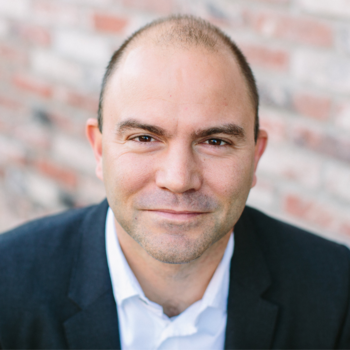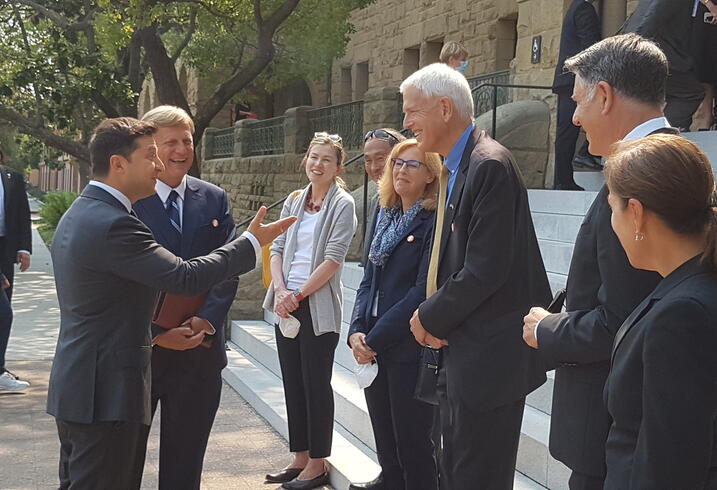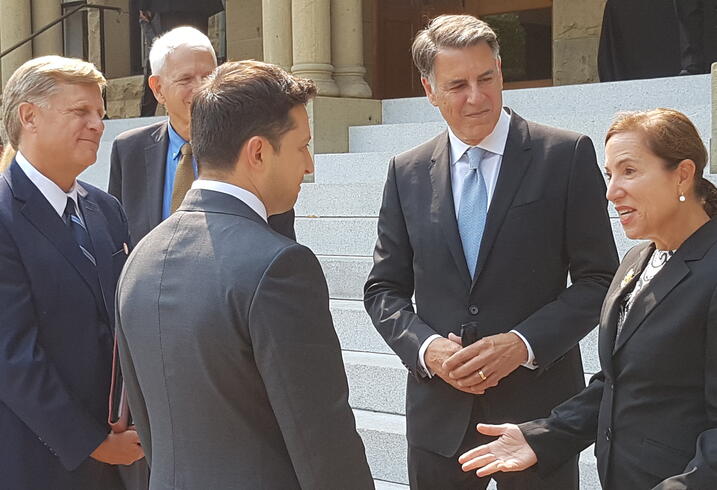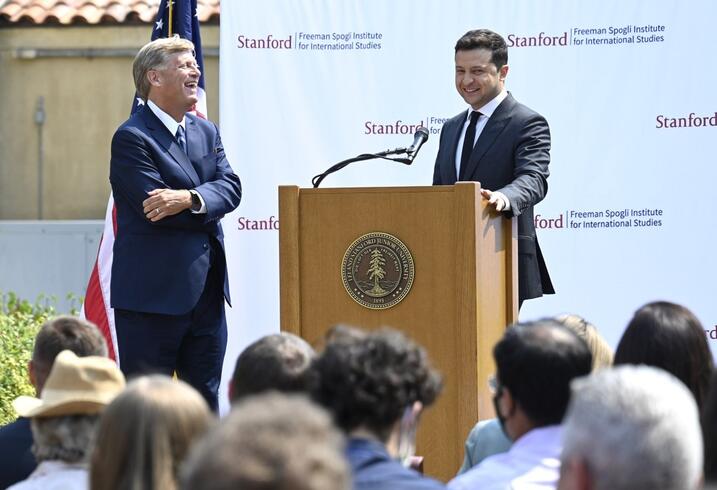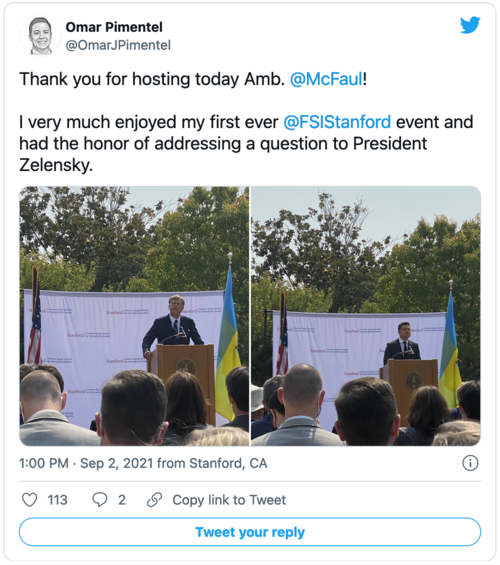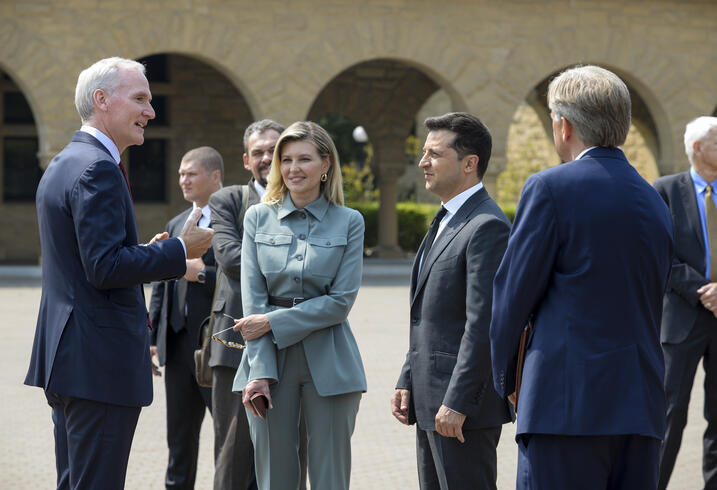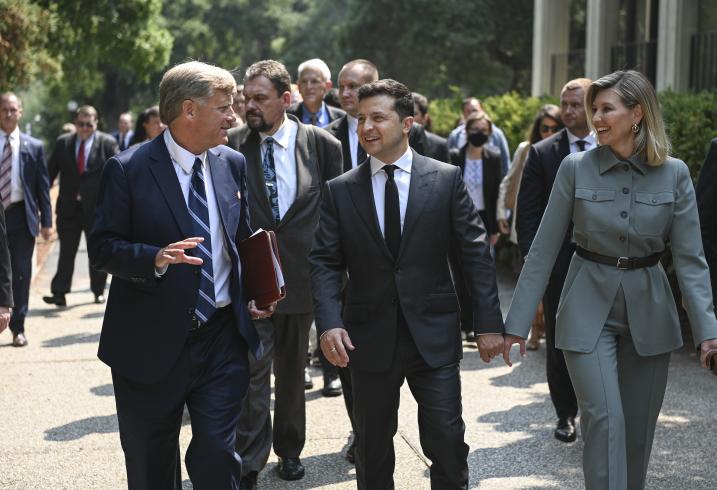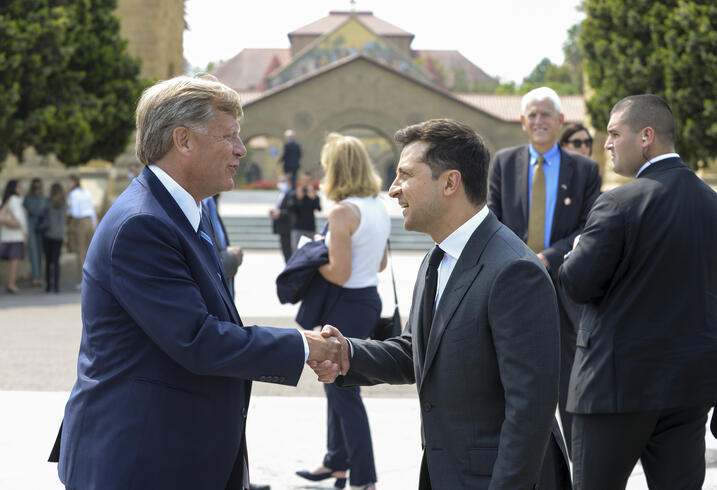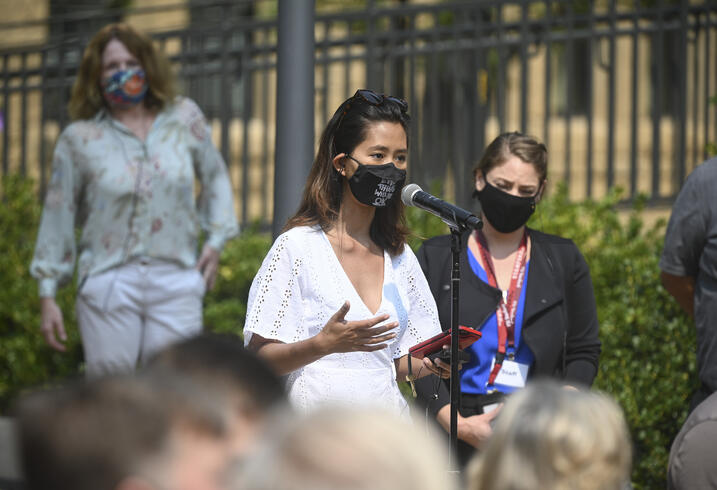* Please note all CISAC events are scheduled using the Pacific Time Zone.
Seminar Recording: https://youtu.be/VJgMJyNz3F4
About the Event: Join David Sanger, National Security Correspondent for the New York Times, Amy Zegart, Senior Fellow at the Freeman Spogli Institute of International Studies, Monica M. Ruiz, Program Fellow for the Cyber Initiative and Special Projects at the William and Flora Hewlett Foundation, Alex Stamos, Adjunct Professor at the Freeman Spogli Institute of International Studies, Michael McFaul, Director at the Freeman Spogli Institute for International Studies, and Herb Lin, Senior Research Scholar at the Center for International Security and Cooperation, for a panel discussion of The Perfect Weapon, an HBO documentary special based on the best-selling book by New York Times national security correspondent David E. Sanger, which is now available to stream on HBO Max. Directed by John Maggio, the film explores the rise of cyber conflict as a primary way in which nations now compete with and sabotage one another. Cheap, invisible and devastatingly effective, cyber weapons are the present and future of geopolitical conflict – a short-of-war pathway to exercising power. The Perfect Weapon draws on interviews with top military, intelligence and political officials for a comprehensive view of a world of new vulnerabilities, particularly as fear mounts over how cyberattacks and influence operations may affect the 2020 U.S. election, vulnerable power grids, America’s nuclear weapons arsenal, and the global networks that are the backbone of private enterprise. The film also explores how the U.S. government is struggling to defend itself from cyberattacks while simultaneously stockpiling and using the world's most powerful offensive cyber arsenal.
Watch the film trailer HERE.
About the Speakers:
Dr. Herb Lin is senior research scholar for cyber policy and security at the Center for International Security and Cooperation and Hank J. Holland Fellow in Cyber Policy and Security at the Hoover Institution, both at Stanford University. His research interests relate broadly to policy-related dimensions of cybersecurity and cyberspace, and he is particularly interested in the use of offensive operations in cyberspace as instruments of national policy and in the security dimensions of information warfare and influence operations on national security. In addition to his positions at Stanford University, he is Chief Scientist, Emeritus for the Computer Science and Telecommunications Board, National Research Council (NRC) of the National Academies, where he served from 1990 through 2014 as study director of major projects on public policy and information technology, and Adjunct Senior Research Scholar and Senior Fellow in Cybersecurity (not in residence) at the Saltzman Institute for War and Peace Studies in the School for International and Public Affairs at Columbia University; and a member of the Science and Security Board of the Bulletin of Atomic Scientists. In 2016, he served on President Obama’s Commission on Enhancing National Cybersecurity. Prior to his NRC service, he was a professional staff member and staff scientist for the House Armed Services Committee (1986-1990), where his portfolio included defense policy and arms control issues. He received his doctorate in physics from MIT.
Dr. Michael McFaul is Director at the Freeman Spogli Institute for International Studies, the Ken Olivier and Angela Nomellini Professor of International Studies in the Department of Political Science, and the Peter and Helen Bing Senior Fellow at the Hoover Institution. He joined the Stanford faculty in 1995.
Dr. McFaul also is as an International Affairs Analyst for NBC News and a columnist for The Washington Post. He served for five years in the Obama administration, first as Special Assistant to the President and Senior Director for Russian and Eurasian Affairs at the National Security Council at the White House (2009-2012), and then as U.S. Ambassador to the Russian Federation (2012-2014). Continue Reading >>>
Monica M. Ruiz is the Program Fellow for the Cyber Initiative and Special Projects at the William and Flora Hewlett Foundation. In her work on the Cyber Initiative, she supports efforts to build a more robust cybersecurity field and improve policy-making. She also manages the foundation’s portfolio of Special Projects grants, part of a pool of flexible funds that allow the foundation to respond to unanticipated opportunities, explore potential initiatives, collaborate with other funders and facilitate cross-pollinating work across the foundation’s programs.
Prior to joining the foundation, Monica was the first recipient of the Boren Fellowship to travel to Estonia, where her research focused on cybersecurity issues and she studied the Russian language. Earlier in her career, she worked at U.S. Southern Command in the J9 Partnering Directorate, where she served as the military education coordinator between the Command and partners in the region.
Born in Ecuador and raised in Miami, she holds a bachelor’s degree from Florida International University and a master’s degree from The Fletcher School of Law and Diplomacy at Tufts University.
David E. Sanger is a national security correspondent and senior writer for the New York Times, a contributor to CNN and an adjunct lecturer at the Kennedy School of Government. In a 38-year reporting career for The Times, he has been on three teams that have won Pulitzer Prizes, most recently in 2017 for international reporting. His latest book, “The Perfect Weapon: War, Sabotage and Fear in the Cyber Age,’’ published in 2018, examined the emergence of cyberconflict as the primary way large and small states are competing and undercutting each other, changing the nature of global power. An HBO documentary based on the book will air in the Fall of 2020.
He is also the author of two Times best sellers on foreign policy and national security: “The Inheritance: The World Obama Confronts and the Challenges to American Power,” published in 2009, and “Confront and Conceal: Obama’s Secret Wars and Surprising Use of American Power,” published in 2012. For The Times, Mr. Sanger has served as Tokyo bureau chief, Washington economic correspondent, White House correspondent during the Clinton and Bush administrations, and chief Washington correspondent. He co-teaches “Central Challenges in American National Security, Strategy and the Press” at Harvard.
Alex Stamos is a cybersecurity expert, business leader and entrepreneur working to improve the security and safety of the Internet through his teaching and research at Stanford University. Stamos is an Adjunct Professor at Stanford’s Freeman-Spogli Institute and a visiting scholar at the Hoover Institution.
Prior to joining Stanford, Alex served as the Chief Security Officer of Facebook. In this role, Stamos led a team of engineers, researchers, investigators and analysts charged with understanding and mitigating information security risks to the company and safety risks to the 2.5 billion people on Facebook, Instagram and WhatsApp. During his time at Facebook, he led the company’s investigation into manipulation of the 2016 US election and helped pioneer several successful protections against these new classes of abuse. As a senior executive, Alex represented Facebook and Silicon Valley to regulators, lawmakers and civil society on six continents, and has served as a bridge between the interests of the Internet policy community and the complicated reality of platforms operating at billion-user scale. In April 2017, he co-authored “Information Operations and Facebook”, a highly cited examination of the influence campaign against the US election, which still stands as the most thorough description of the issue by a major technology company. Continue Reading >>>
Dr. Amy Zegart is a senior fellow at the Freeman Spogli Institute of International Studies (FSI), professor of political science (by courtesy) at Stanford University, and a contributing editor to The Atlantic. She is also the Davies Family Senior Fellow at the Hoover Institution, where she directs the Robert and Marion Oster National Security Affairs Fellows program. From 2013 to 2018, she served as co-director of the Freeman Spogli Institute’s Center for International Security and Cooperation (CISAC) and founder and co-director of the Stanford Cyber Policy Program. She previously served as the chief academic officer of the Hoover Institution.
Her areas of expertise include cybersecurity, US intelligence and foreign policy, drone warfare, and political risk. An award-winning author, she has written four books. These include Bytes, Bombs, and Spies: The Strategic Dimensions of Offensive Cyber Operations (2019) coeditor with Herb Lin; Political Risk: How Businesses and Organizations Can Anticipate Global Insecurity (2018) with Condoleezza Rice; Spying Blind: The CIA, the FBI, and Origins of 9/11 (2007), which won the National Academy of Public Administration’s Brownlow Book Award; Flawed by Design: The Evolution of the CIA, JCS, and NSC (1999); and Eyes on Spies: Congress and the US Intelligence Community (Hoover Institution Press, 2011). She has also published in leading academic journals, including International Security, the Journal of Strategic Studies, and Political Science Quarterly. Continue Reading >>>


 FSI researchers work to understand continuity and change in societies as they confront their problems and opportunities. This includes the implications of
FSI researchers work to understand continuity and change in societies as they confront their problems and opportunities. This includes the implications of 